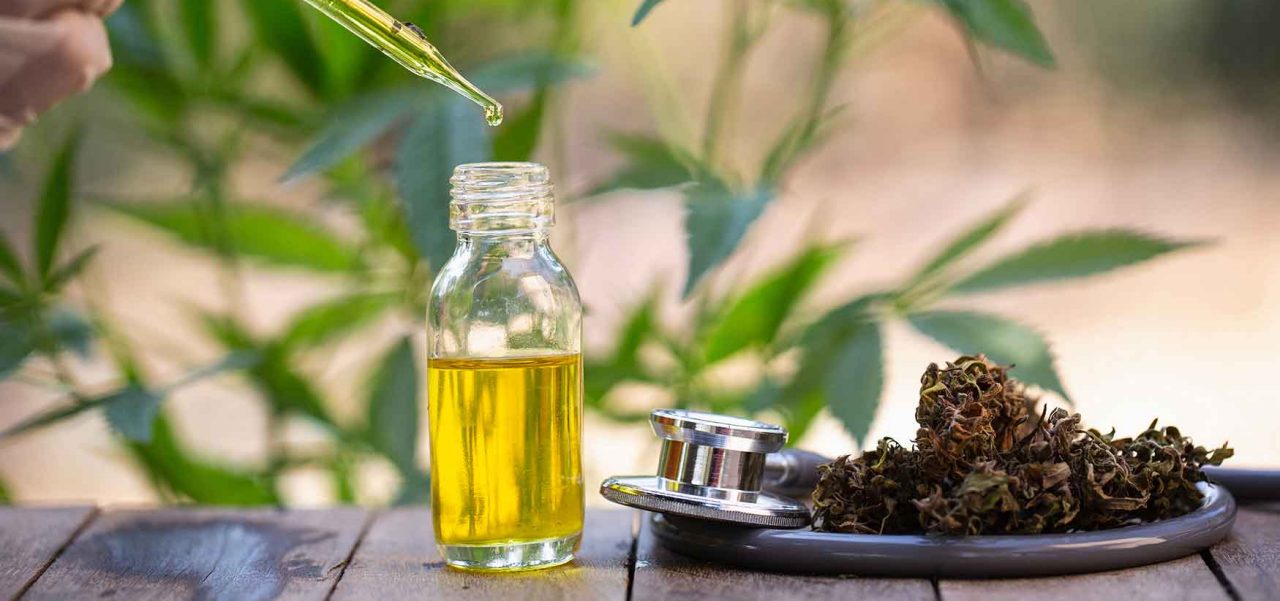What Is CBD Oil?

What is CBD oil? This oil contains cannabidiol, a chemical in the marijuana plant. It doesn't get you high, but marketers claim it has health benefits.
What is CBD?
Cannabidiol (CBD) is one of many chemicals in the cannabis sativa plant. In 2018, the Food and Drug Administration (FDA) approved a purified form of CBD oil, a prescription called Epidiolex, to treat two kinds of epilepsy. But researchers are looking into many other CBD oil benefits.
YOU MIGHT ALSO LIKE: Are Fewer Opioid-related Deaths One Benefit of Medical Marijuana?
What is CBD oil?
Manufacturers have infused oils with CBD. Like supplements, these products are unregulated and any claims on the bottle have not have been vetted by an outside party. Unregulated products may not match their packaging or be the same each time you buy them.
CBD oil may be taken with a dropper, consumed in a capsule, sprayed under the tongue, or massaged into the skin. How much to use depends on your weight and your medical issue. Potency will also depend upon the brand.
Most of the CBD we use medicinally comes from hemp. Marijuana and hemp are two forms of one plant, cannabis sativa, but marijuana has been bred over decades by farmers to contain more delta-9 tetrahydrocannabinol (THC) and less CBD. THC is the ingredient that makes you feel high when you smoke it or eat products that contain it.
CBD, on the other hand, doesn’t give you the characteristic stoned or high feeling, but it may leave traces amounts of THC in your urine and blood.
CBD oil benefits
Your body naturally creates and uses chemicals called cannabinoids. CBD may work by nudging you to use more of your cannabinoids, with a long list of possible good effects. CBD sounds like a wonder drug in early research, showing potential for treating everything from acne to Alzheimer’s. The key may be its power to dampen inflammation, a reaction of the immune system that causes many illnesses when it goes awry.
The laws about marijuana and CBD vary greatly from one state to the next. Your state may specify that you need a prescription to use CBD oil.
To date, CBD oil is approved for two kinds of seizures, and may treat complications of epilepsy.
There is evidence that CBD soothes pain and can help people quit smoking by dampening their cravings for nicotine. Other research suggests that it can relieve symptoms associated with substance use and withdrawal: anxiety, insomnia, and pain.
CBD may be an antipsychotic useful for some people with schizophrenia. Other studies found that CBD suppresses the growth of cancer with less toxic side effects than chemotherapy.
CBD oil for anxiety
If you have chronic anxiety, you may have found that marijuana makes your anxiety more intense. But that is most likely an effect of THC. CBD, by contrast, may have a calming effect and be useful for people who suffer from post-traumatic stress disorder (PTSD), social anxiety, panic attacks, and obsessive compulsive disorder.
Side effects of CBD
So far researchers have not found major side effects from CBD, but we don’t know the effects from using CBD at various concentrations over years. Some adults become tired and some develop diarrhea or changes in appetite. There is no research on its use in children.
Updated:
July 11, 2019
Reviewed By:
Janet O’Dell, RN